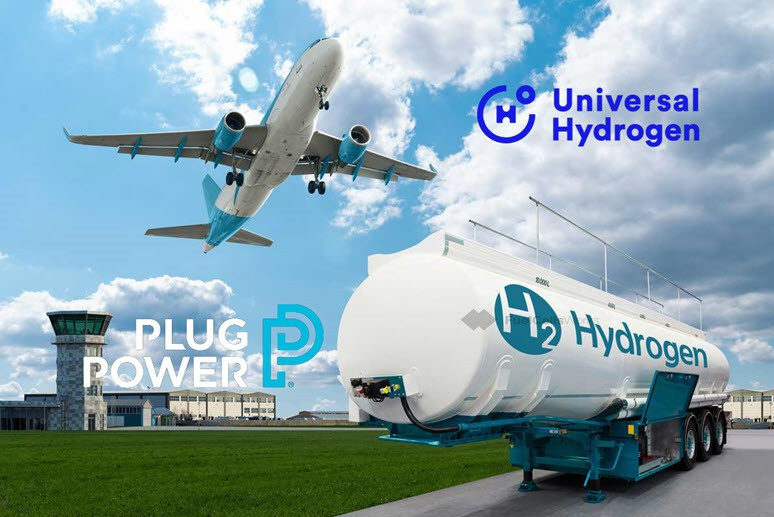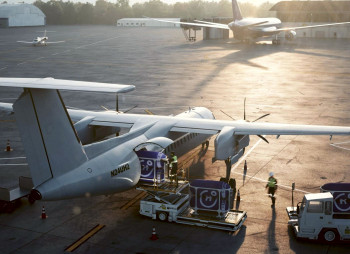The race to decarbonize aviation got a boost this Earth Day with the announcement of a $20.5 million Series A round by Universal Hydrogen, a Los Angeles-based startup aiming to develop hydrogen storage solutions and conversion kits for commercial aircraft.
“Hydrogen is the only viable path for aviation to reach Paris Agreement targets and help limit global warming,” said founder and CEO Paul Eremenko in an interview with TechCrunch. “We are going to build an end-to-end hydrogen value chain for aviation by 2025.”
The round was led by Playground Global, with an investor syndicate including Fortescue Future Industries, Coatue, Global Founders Capital, Plug Power, Airbus Ventures, Toyota AI Ventures, Sojitz Corporation, JetBlue Technology Ventures and Future Shape.
The company’s first product will be lightweight modular capsules to transport “green hydrogen,” produced using renewable power to aircraft equipped with hydrogen fuel cells. The capsules will ultimately be available in different sizes for aircraft ranging from VTOL air taxis to long-distance, single-aisle planes.
“We want them to be interchangeable within each class of aircraft, a bit like consumer batteries today,” says Eremenko.
To help kickstart the market for its capsules, Universal Hydrogen is developing one such plane itself, a modified 40-60-seat turboprop capable of regional flights of up to 700 miles. The effort is a collaboration with seed investor Plug Power, which will supply the hydrogen and fuel cells, and magniX, which develops motors for electric aircraft.
Eremenko hopes to have the plane flying paying passengers in a larger, 50-plus seater aircraft by 2025 and ultimately to produce kits for regional airlines to retrofit their own aircraft.
“We want to have a couple of years of service to de-risk hydrogen certification and passenger acceptance before Boeing and Airbus decide on the airplanes they are going to build in the early 2030s,” says Eremenko. “It’s imperative that at least one of them build a hydrogen airplane or aviation is not going to hit its climate goals.”
Universal Hydrogen is not alone in betting on hydrogen. ZeroAvia in the U.K. is developing its own regional fuel cell aircraft on an even more ambitious timeline, and Airbus in particular has been working on hydrogen aircraft concepts.
Eremenko hopes that producing a simple and safe hydrogen logistics network will soon attract new entrants.
“It’s like the Nespresso system. We have to make the first coffee maker or nobody cares about our capsule technology, but we don’t want to be in the coffee maker business. We want other people to build coffee with our capsules.”
Universal Hydrogen will use the Series A funds to grow its current 12-person team to around 40 and accelerate its technology development.





